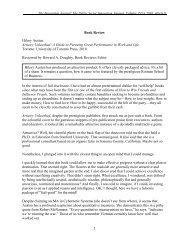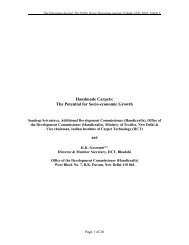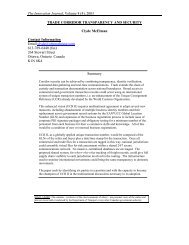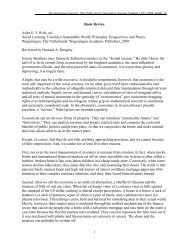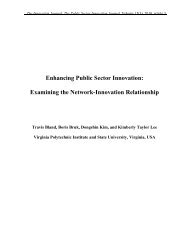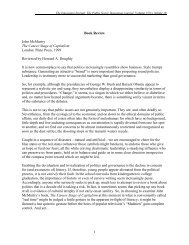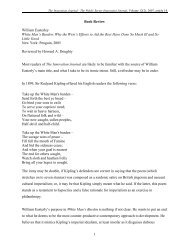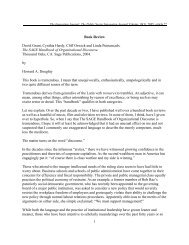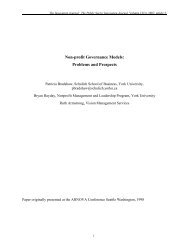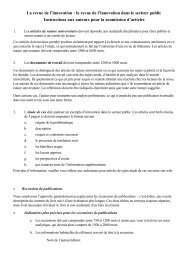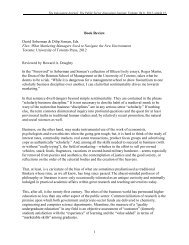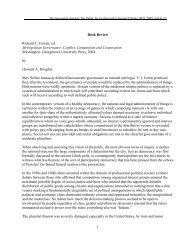The Followership Continuum - The Innovation Journal
The Followership Continuum - The Innovation Journal
The Followership Continuum - The Innovation Journal
You also want an ePaper? Increase the reach of your titles
YUMPU automatically turns print PDFs into web optimized ePapers that Google loves.
<strong>Followership</strong> <strong>Continuum</strong> Research<br />
Preliminary research on the <strong>Followership</strong> <strong>Continuum</strong> is helping to confirm the basic premises<br />
and related concepts by examining five primary areas:<br />
1. <strong>The</strong> behavioral characteristics necessary for exemplary followership,<br />
2. <strong>The</strong> followership stages,<br />
3. <strong>The</strong> concept that exemplary followership builds on prior followership stages,<br />
4. <strong>The</strong> impact of varying conditions on the followership stage of individuals, and<br />
5. <strong>The</strong> identification of factors that promote and thwart exemplary followership.<br />
To research these factors, different investigations and approaches are being employed.<br />
Employees in the workforce are being surveyed, and workforce productivity research and<br />
literature are being reviewed. <strong>The</strong>se efforts are ongoing and have been conducted on critical<br />
factors in the workplace related to the productivity of employees. Among other areas,<br />
investigations have included the topics of followership; employee empowerment, commitment,<br />
and engagement; employee motivation. <strong>The</strong>se fields provide related background and foundation<br />
for the <strong>Followership</strong> <strong>Continuum</strong>.<br />
<strong>The</strong> author has obtained survey data from three primary feedback strategies. <strong>The</strong>se surveys<br />
include: 1) posting a survey on the Internet, 2) conducting surveys with working professionals in<br />
college classes at the graduate and undergraduate levels, and 3) conducting surveys using<br />
employees in a medium size local government work setting and a small private business. To<br />
date, more than 300 respondents covering different types of work settings have completed the<br />
<strong>Followership</strong> <strong>Continuum</strong> surveys forms. <strong>The</strong>se surveys address various elements of the<br />
followership and the <strong>Followership</strong> <strong>Continuum</strong>. Primarily these surveys have included feedback<br />
related to the following:<br />
1. <strong>The</strong> conditions that thwart and promote followership.<br />
2. Hypotheses related to the followership stages.<br />
3. Hypotheses related to the conditional or situational nature of followership stages.<br />
<strong>The</strong> summary information that follows evolved from survey data on the <strong>Followership</strong><br />
<strong>Continuum</strong>. <strong>The</strong> information briefly highlights research aspects affecting three different<br />
followership concepts.<br />
Research Concept #1 -Characteristics of the Exemplary Follower- Literature reviews were<br />
used to identify the initial elements used in describing the exemplary follower or ideal employee.<br />
<strong>The</strong> compilations of these elements resulted in descriptors of the exemplary follower and the<br />
subsequent followership stages. <strong>The</strong>se have been refined through surveys from all of the more<br />
than 300 survey participants. From these literature reviews and survey results, the lists of eight<br />
critical exemplary followership characteristics have been identified and refinements made:<br />
1. Willing to set ego aside and function as a team player,<br />
2. Self-empowered or internal locus of control with initiative and a willingness to act,<br />
9




